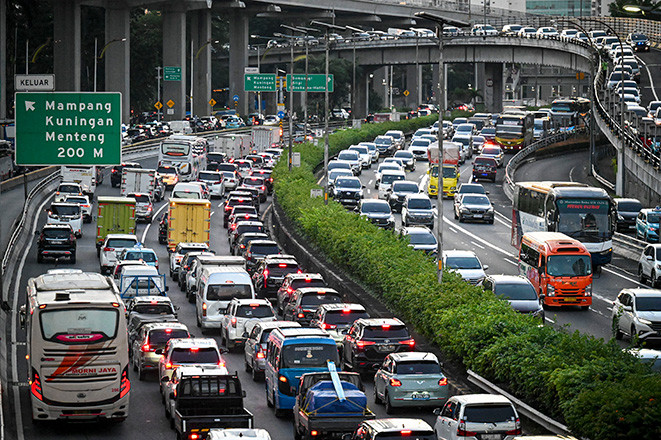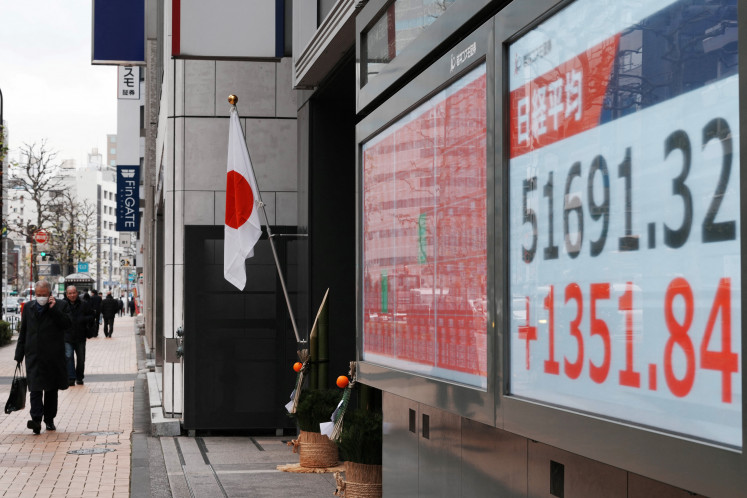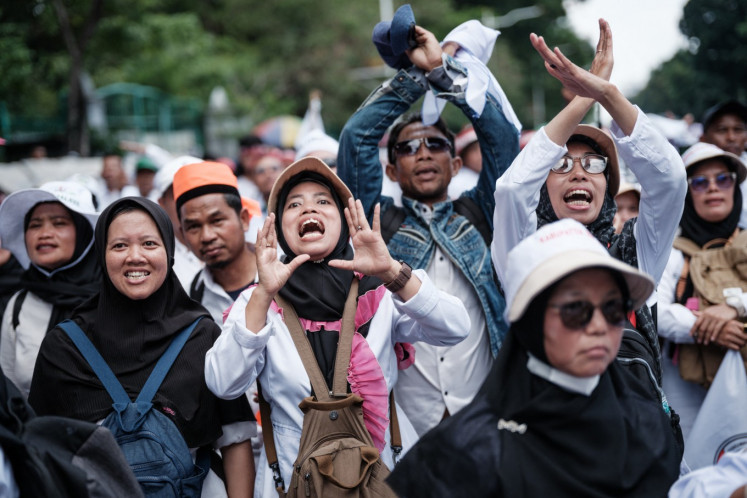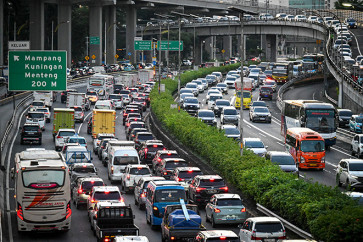Popular Reads
Top Results
Can't find what you're looking for?
View all search resultsPopular Reads
Top Results
Can't find what you're looking for?
View all search resultsGridlocked dreams: Can Jakarta chart a course toward sustainable mobility?
Traffic congestion and air pollution plaguing Jakarta and other cities directly clash with the pursuit of a flourishing and sustainable tomorrow.
Change text size
Gift Premium Articles
to Anyone
T
he 2024 Intelligent Transport Systems (ITS) Asia-Pacific Forum in Jakarta this week holds a significant importance for Indonesia. This esteemed gathering, which will bring together international leaders and specialists in advanced transportation systems, offers a vital opportunity to introduce the “Jakarta Initiative on Sustainable and Smart Urban Mobility”.
This initiative demonstrates Indonesia's strong dedication to addressing the pressing issues of urban transportation, particularly starting with Jakarta, the nation's vibrant capital, soon to be a global city, which is currently home to over 10 million people. It aims not only at implementing advanced technology but also promoting sustainable practices and adopting policies that will positively impact transportation infrastructure and overall quality of life.
Jakarta's rapid urbanization presents a double-edged sword. In 2013, Jakarta was the 10th most populous city in the world (UN, 2013). In 2017, it rose to the ninth place (WEF, 2017). On one hand, it fuels economic growth and innovation, on the other, it strains the city's infrastructure. The background of this issue is complex and multi-faceted: as Jakarta undergoes swift urbanization, its transportation networks struggle to keep up with the expanding population and growing demand for mobility.
Jakarta's traffic congestion has become a major problem, with the city ranking seventh among 403 cities in 56 countries surveyed according to Tomtom's 2018 traffic index. However, the recent update from Tomtom in 2023 showed Jakarta's ranking has improved to 30th out of 387 cities. This indicates progress in integrating public transportation systems, but considering the time needed for acclimatization, every effort seems to be too little too late.
This deep-rooted traffic congestion not only affects productivity but also significantly impacts residents’ livability. Moreover, air pollution arising from this gridlock poses serious health risks to inhabitants as well, making Jakarta one of the cities with the worst air quality in the world (AirVisual, August 2019).
The never-ending economic problems derived from these urban mobility issues are far-reaching with their impact felt across various sectors. Commuters in Jakarta face lengthy travel times, with an average of two to three hours per trip and four to five hours for a round trip. Businesses battle with increased logistics costs due to unreliable travel times caused by traffic jams and delays in transit systems that hamper efficient movement of goods within the city. This inefficiency not only obstructs investment opportunities but also restricts overall economic development, ultimately impacting the prosperity of businesses operating in Jakarta directly or indirectly.
Furthermore, the prolonged and stressful commutes experienced by workers lead to decreased productivity levels, affecting companies' output and profitability. It also influences family dynamics as individuals spend extended periods away from home due to transportation challenges. In light of these extensive repercussions stemming from insufficiencies in mobility infrastructure, it becomes clear that comprehensive interventions are imperative at both strategic planning and operational levels across multiple governmental agencies.



















